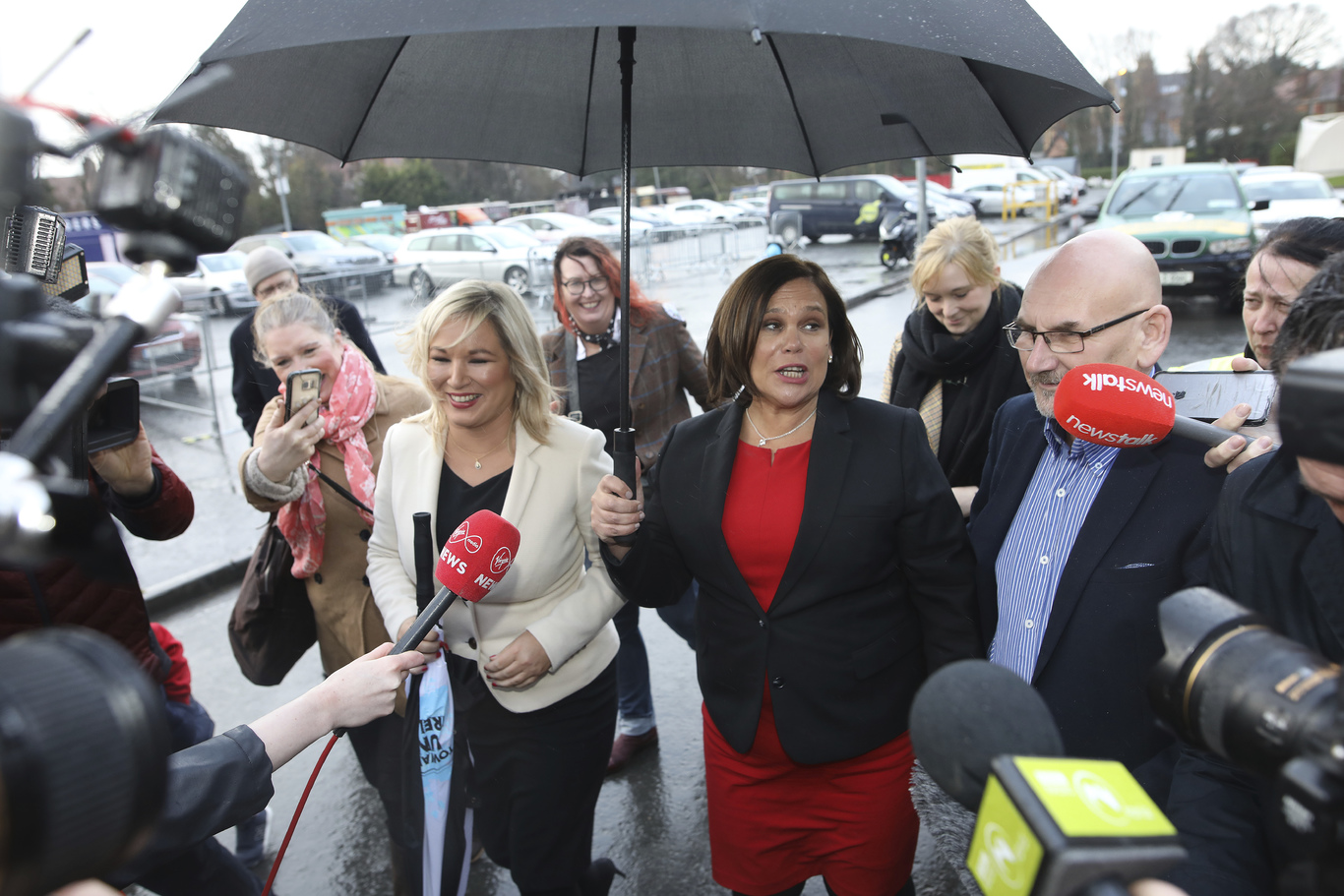Your crash course in... the Irish stock market's post-election jitters
Should businesses be worried about this week’s share price slump?
FRESH OUT OF the frying pan of Brexit, there was plenty of fear and trembling to go around in the business pages this week as the makeup of the 33rd Dáil revealed itself.
A slump in the share prices of Irish banks coupled with a similar movement for listed property companies like Glenveagh and Hibernia Reit had investors biting their nails early in the week.
The electorate’s clear appetite for solutions to the housing crisis, the dramatic Sinn Féin surge and the prospect of a general shift in Irish politics to the centre-left has widely been blamed for the anxiety.
But exactly how much can be read into this market jitter and what does it say about the business community’s reaction to recent political events?
What happened?
Markets woke up with a jolt on Monday morning as the results of last weekend’s election began to take shape.
By the closing bell, Bank of Ireland shares had fallen by over 8%, landing at €3.93 while AIB shares tumbled by 5.44% to €2.364.
Listed housebuilders Cairn Homes and Glenveagh Properties suffered similarly, closing at €1.124 and €0.78 after respective slumps of 8.62% and 10.86%.
Meanwhile, IRES Reit and Hibernia Reit, the state’s biggest landlords, shed 8.65% and 6.98% to finish the day at €1.50 and €1.28 respectively.
By Wednesday evening, however, many of these losses had been clawed back and the share prices had regained much of their relative pre-election lustre.
What were the markets reacting to?
Given the party’s strong support for rent freezes and mortgage rate cuts, the general media consensus has been that investors have been spooked by Sinn Féin’s electoral breakthrough last weekend.
For analysts such as Paul Sommerville, the chief executive of Sommerville Advisory Markets, this analysis is a bit too simplistic. He believes that Monday’s malaise was not a market referendum on specific policy platforms, but rather the confusion created by the outcome of the election.
Thanks to the “inconclusive results,” Sommerville anticipated a “long period of uncertainty” in Irish public life as government formation talks rattle on.
“As markets dislike uncertainty they reacted badly,” he said.
Sommerville said that “as Monday progressed and it became clear that no one party had a seat advantage, the selling pressure intensified”.
Irish bank shares have been pummelled over the past two years, depressed by several factors including falling European Central Bank interest rates.
In just 30 days last summer, for example, AIB’s share price fell by some 37% and in this context, Sommerville explained, Monday’s reaction was “slight”.
Should businesses be worried?
Warning against a “knee jerk reaction” to the week’s events, Danny McCoy, chief executive of IBEC, said on Wednesday that “calm is required,” particularly given the current strength of the overall Irish economy.
McCoy said that he doesn’t believe that any new government could go it alone in trying to solve the housing crisis and that the private sector will have a major part to play in that.
Sommerville, on the other hand, said that the performance of property stocks this week probably does signify that the market is predicting an uptick in supply, possibly from a government-led house building programme.
“Falls in property-related shares should be seen as good news for the Irish economy,” Sommerville said, because “high rents have a dampening effect on consumer demand”.
In his opinion, “if any political party can sort out the housing crisis, it would be hugely beneficial for the medium and long term Irish economy”.
Sign up to our newsletter to receive a regular digest of Fora’s top articles delivered to your inbox.






